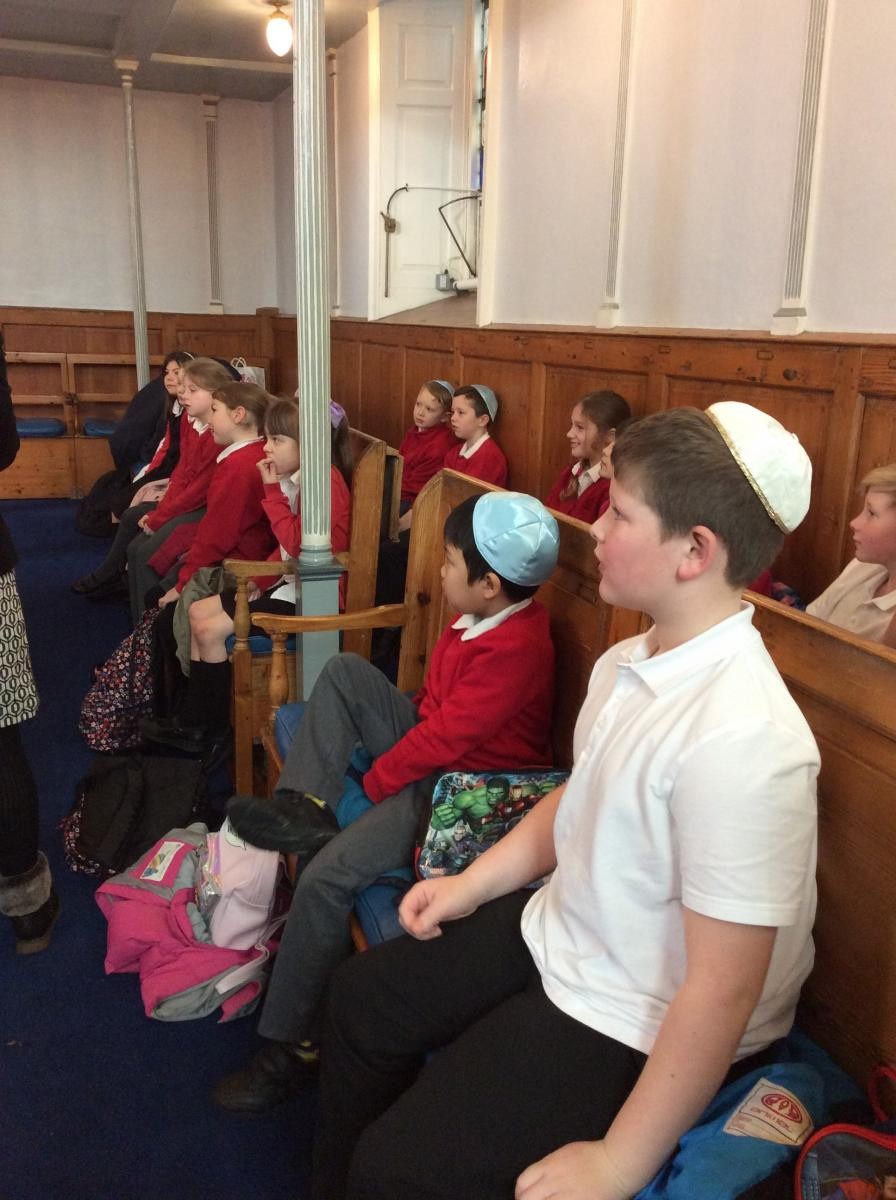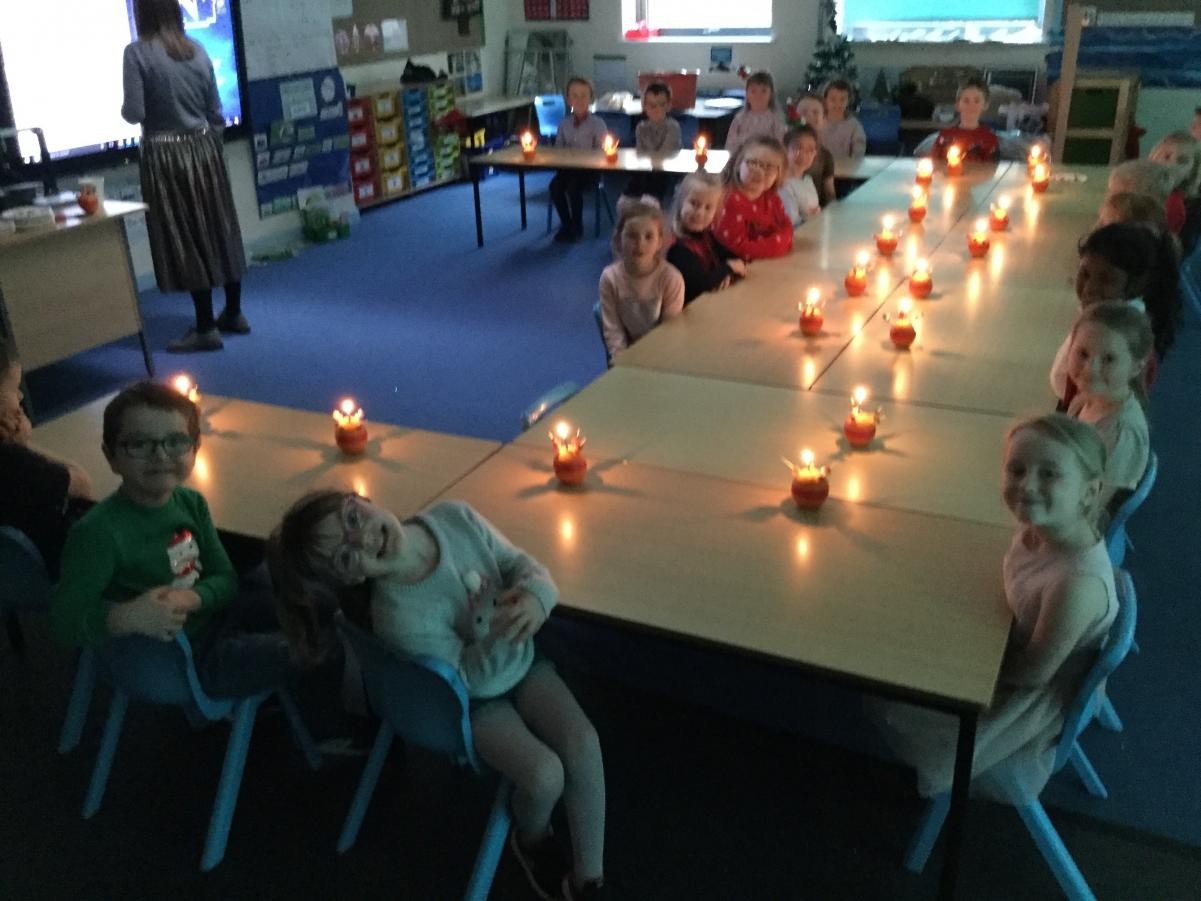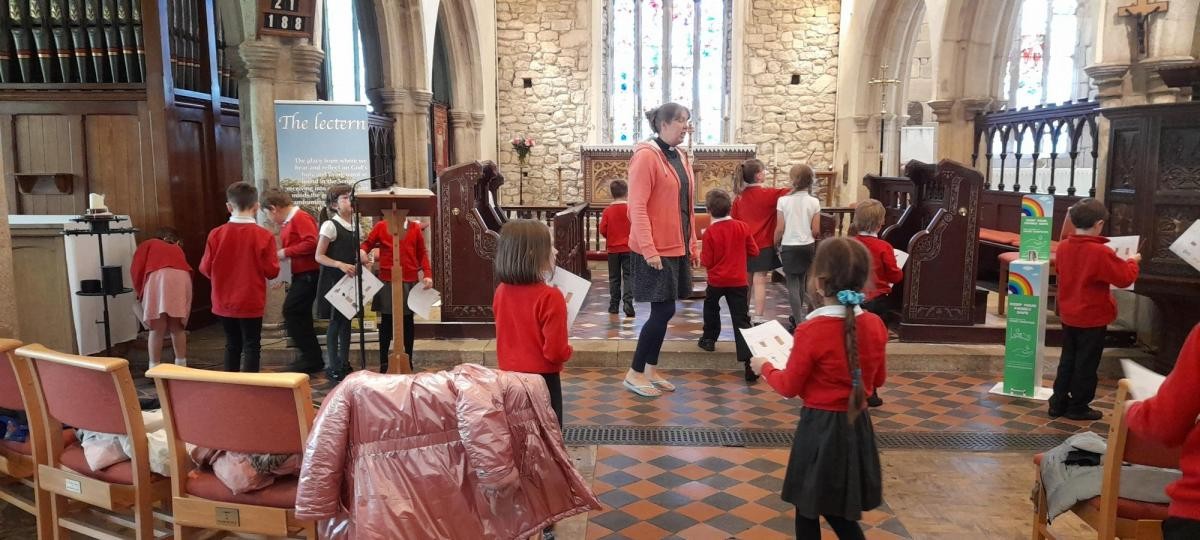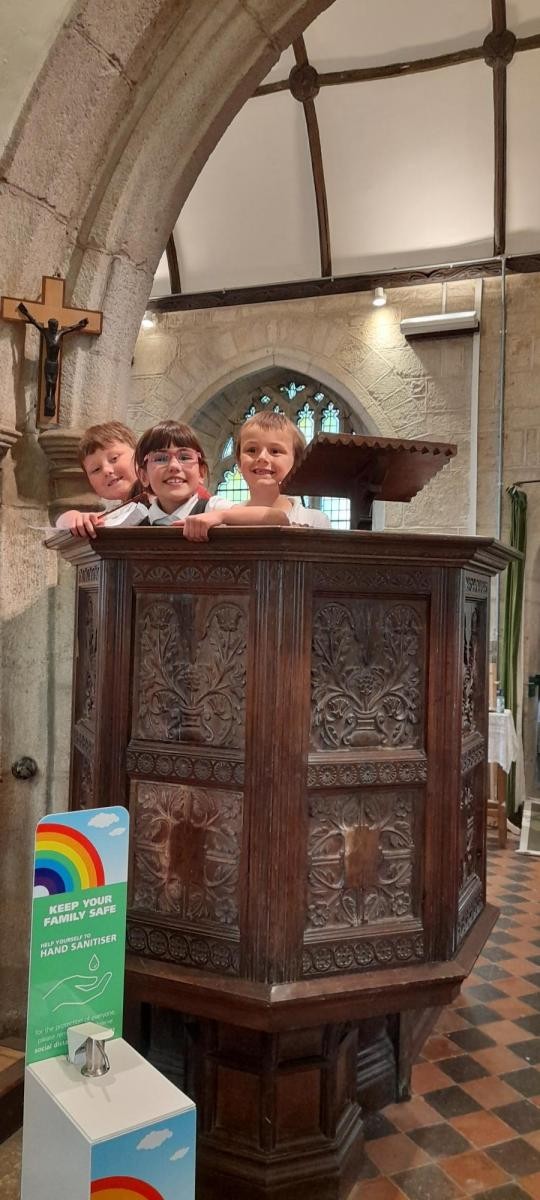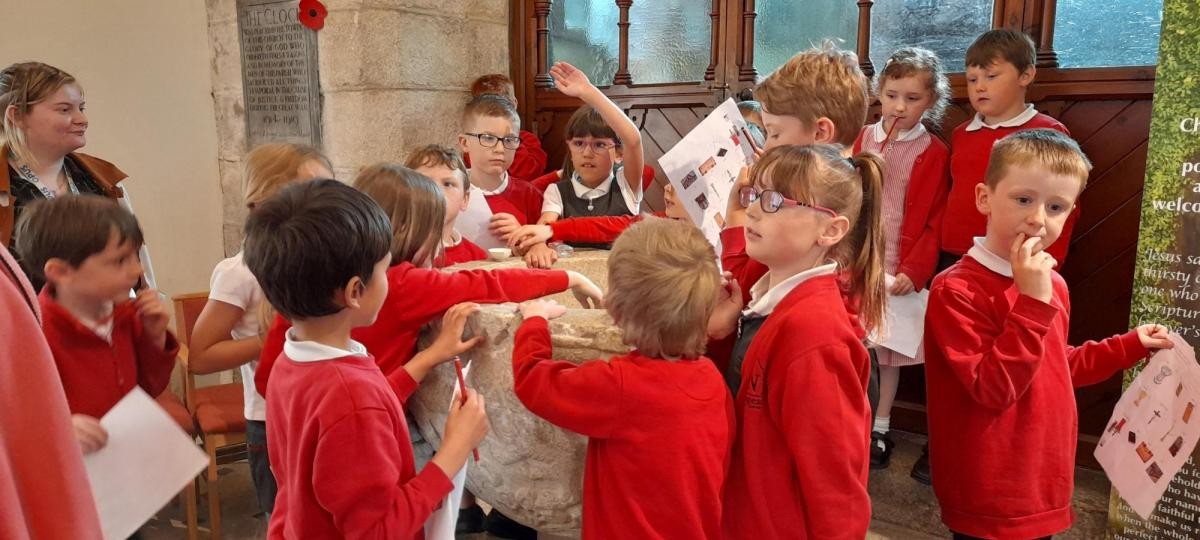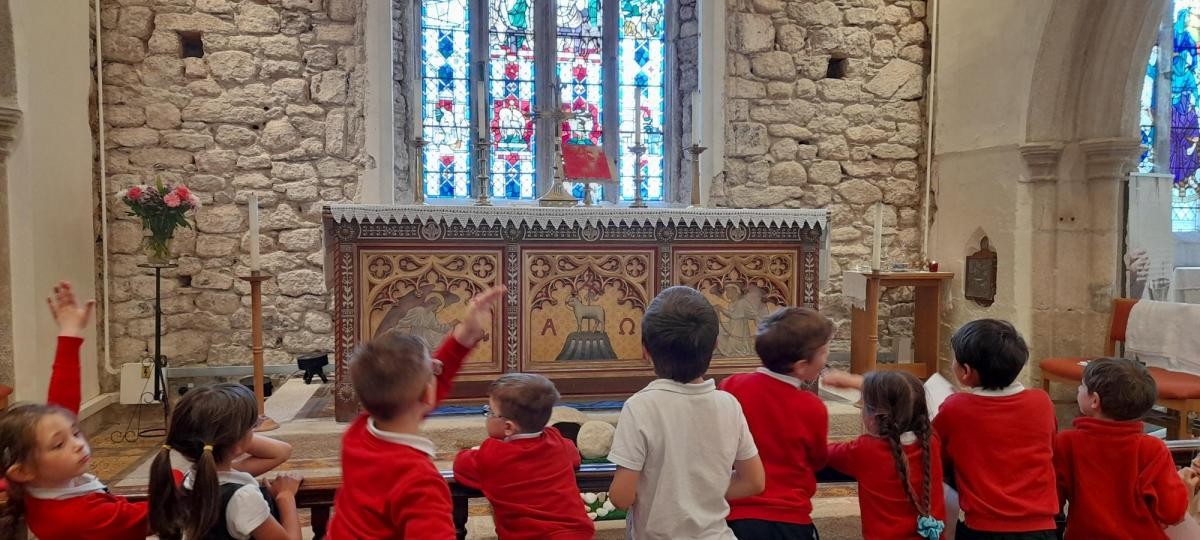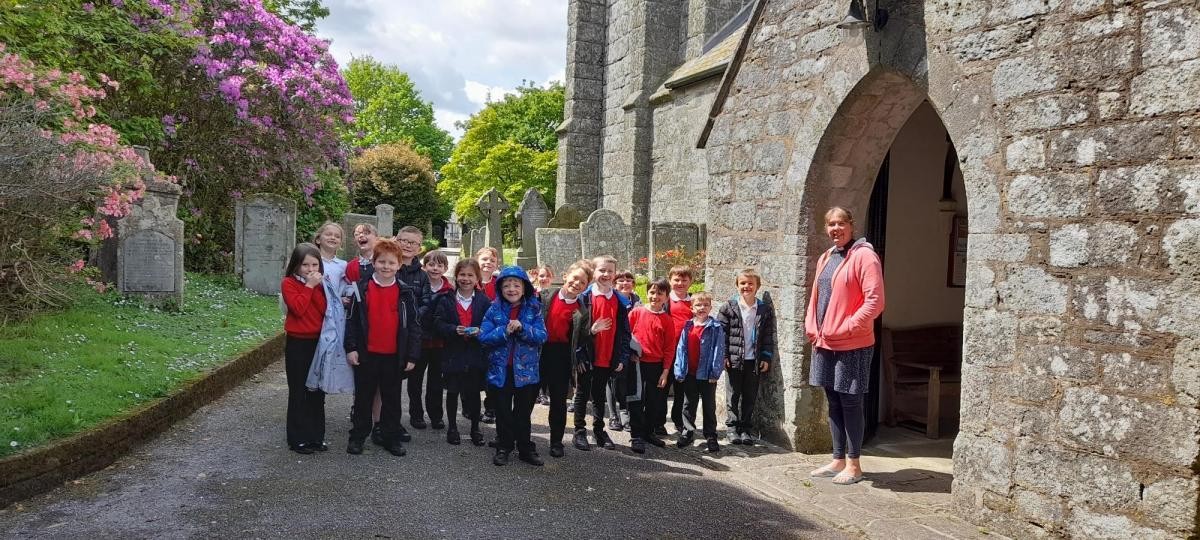“Religions are different roads converging to the same point. What does it matter that we all take different roads as long as we reach the same goal? In reality there are many different religions as there are individual people.”
Parents have the right to withdraw their child from all or part of RE studies. Please email nanpean@tpacademytrust.org to make an appointment with a member of our team to discuss this.
Subject Leader: Mrs J Cooper
Rationale: Purpose of Study
Nanpean CP School believes in learning about the achievements and aspirations from different world religions. In today’s world, it is vital to teach our children about the traditions, festivals and values of others. We also encourage children to share their experiences and celebrate their own beliefs. RE helps to prepare our pupils to become responsible citizens by raising local, national and global concerns. Our school rules also underpin the values taught by different religions and our school assemblies also celebrate a variety of morals.Intent
The school’s vision of ‘Nanpean Community Primary School: Nurturing Children’s Passion to Succeed’ ensures we promote the spiritual, moral, social and cultural development of our children.
The teaching of Religious Education (RE) at Nanpean School aligns to the Cornwall Syllabus and its principle aim of children exploring what people believe in and what difference this makes to how we live, to enable them to gain the knowledge, understanding and skills needed to handle questions raised by religion, reflecting on their own ideas and ways of living.
Our scheme of work is in accordance with the Cornwall Agreed Syllabus (2020-2025) which progressively builds the children’s understanding of concepts in line with their own self-understanding and their understanding of the world.
Implementation
The implementation of Nanpean School’s programme of study for RE is in accordance with The Agreed Syllabus for Religious Education in Cornwall 2020-2025. All religions and their communities are treated with respect and sensitivity and we value the links that can be made between home, school and a faith community. We acknowledge that each religion studied can contribute to the education of our pupils, and we promote teaching in RE that promotes open enquiry and first-hand experiences wherever possible.
The RE Curriculum at Nanpean School is well thought out and is planned to demonstrate progression and thus ensuring a high quality experience for our pupils. The RE Curriculum has a focus on disciplinary knowledge which builds on the children’s own experiences and uses contemporary issues to stimulate discussion, while reflection on their learning enables the children to make sense of beliefs, understand their impact and make connections. Substantive knowledge is taught through tasks being provided to children which enable them to gain knowledge, understand this and apply it in relation to religions and beliefs.
Impact
Religious Education (RE) offers opportunities for personal reflection and spiritual development while enhancing children’s awareness and understanding of religions and beliefs. As a result, it also encourages our pupils to learn from different religions, their beliefs, values and traditions while exploring their own beliefs. RE plays an important part in preparing pupils for adult life, employment and lifelong learning.
- Children from all backgrounds enjoy lessons and look forward to learning more.
- Lesson visits in 2023-24 have shown that the Religious Education (RE) Curriculum provokes discussion through challenging questions. It develops children’s knowledge and understanding of Christianity, other principle religions, other religious traditions and world views.
- Pupil Conferencing (considering a range of pupils) in 2023-24 showed that 82% of the children can confidently talk about their learning, give key facts and explain key vocabulary about the units covered. However, we now intend to deepen children’s knowledge in relation to RE and concepts.
- Pupil Conferencing in 2023-24 also showed that children have an appreciation of diversity and tolerance: the RE Curriculum enables our pupils to develop respect and sensitivity to others, in particular those whose faith and beliefs are different from their own.
- Teachers are able to monitor the impact of their lessons by following assessment procedures for History, which include quizzes and ‘show what you know’ grids. Teachers also look at children’s work in line with our assessment and feedback policy.
British Values
At Nanpean School, British Values are embedded across the Curriculum, and RE in particular makes a key contribution to children’s exploration of the British Values. RE offers opportunities to build an accurate knowledge base about religions, their beliefs and values. This in turn supports our children to move beyond attitudes of tolerance to one of an increasing mutual respect for others, thus celebrating diversity.
Tolerance – Nanpean School always challenges and does not accept intolerant attitudes to members or the community, which could be attitudes that show rejection on the basis of a number of reasons, such as race, faith, gender, sexual orientation or age. We endorse the virtue that every person has the right to ‘be themselves’ and this is accepted by all members of our school community. We are aware that tolerance in itself is often not enough, this is purely a starting point to our children becoming increasingly respectful with the ability to understand and celebrate diversity. At Nanpean School, this is achieved through allowing children to think for themselves in relation to topical issues that are explored and discussed.
Mutual Respect – The RE Curriculum at Nanpean School as an ongoing focus on developing mutual respect between those of different faiths and beliefs, while promoting an understanding of what society gains through its diversity. Children are encouraged to be open-minded and warm-hearted in their respect of others, their views and diversity of different religions. Respectful attitudes are developed by considering similarities and differences between religions, including where there are similar values but the belief is different.
Democracy – In RE lessons at Nanpean School, children learn the significance of each person’s ideas and experiences through discussion. They debate and children learn to respect different perspectives to their own. This contributes to learning about democracy, examining the idea that we all share a responsibility for the wellbeing of ourselves and others.
The Rule of Law – At Nanpean School, children explore different examples of ‘codes’, including the commandments, as well as rules offered by different religious communities. They develop awareness of how individuals choose between right and wrong, good and evil, and learn to apply these ideas to themselves in their own communities. They also learn to understand that fairness requires the law be applied equally to everyone, irrespective of their social status or any protected characteristics.
Individual Liberty – Children consider questions about identity, belonging and diversity, learning about examples of pioneers of human freedom including those within different religions. Children are encouraged to reflect upon their views and how they view people with beliefs that are different to their own.
SMSC
Much of our RE Curriculum enables clear links to cultural learning, through our children developing an awareness of how different religions have influenced and shaped cultures and the people that live within them.
Children are asked to consider and comment on moral questions and dilemmas. Events and beliefs in of different religions will often be different to what our children will have experienced. Therefore, children are encouraged to show compassion for people facing dilemmas and to empathise with decisions which people make and the reasoning behind these decisions. As a result, discussion about right and wrong are explored in connection with different religions.
Children explore the similarities and differences between different religions. They examine how other religions and cultures have had a major impact on the development of British culture. Children also have opportunities to develop socially through collaborative and team working activities.
Children are encouraged to gain an understanding of, and empathy for, people from different religions and cultural backgrounds. They examine how other religions and cultures have contributed and had an impact on the development of Britain. This has links with the British Values (see above).How you can help your child at home
Why not go out for the day as a family to visit a place of worship or something that is relevant to a different religion? You can also support your child(ren) with RE learning by having open conversations and discussions about different religions, their values and beliefs.
The following websites could also be used to support your child:


